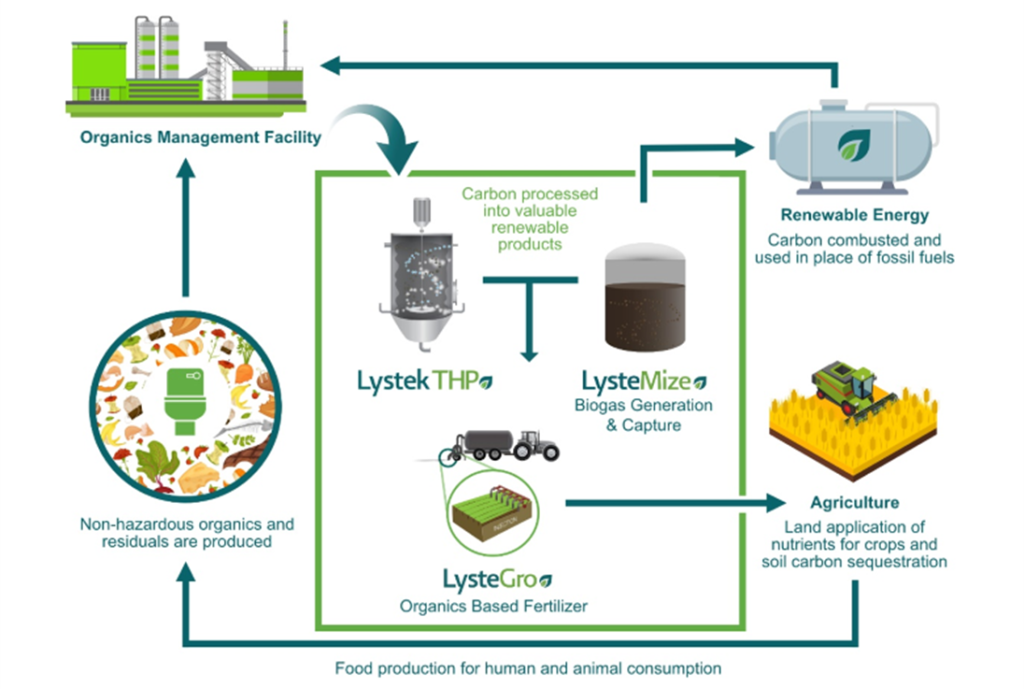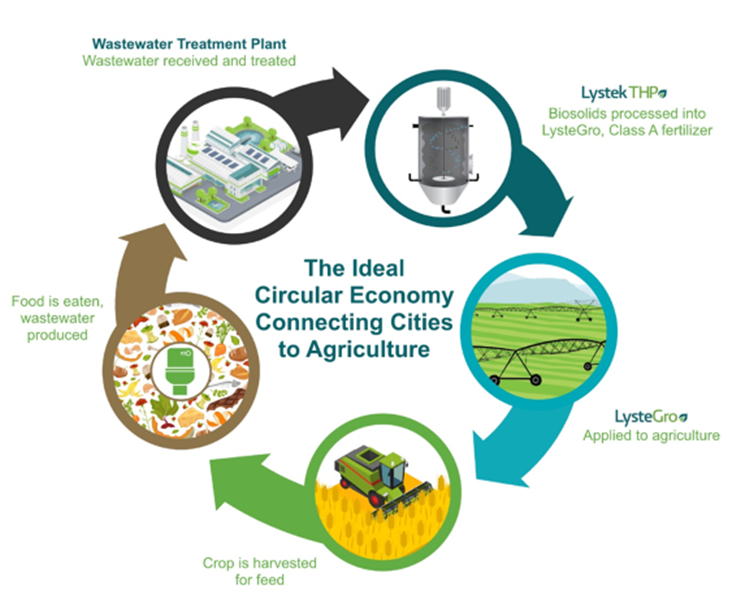Could you tell us a little bit about your business?
Lystek is a leading provider of advanced thermal hydrolysis and product management solutions in the wastewater biosolids and organics management sectors.
Lystek’s flagship facility, the Southgate Organic Materials Recovery Centre (OMRC) located in Dundalk, ON, was commissioned in 2013. The facility receives and processes biosolids and organics into the CFIA regulated fertilizer, LysteGro. The liquid fertilizer is sold within the local area (approximately a 50 km radius of the site), providing farmers a cost-effective fertilizer that contributes to both crop production and soil health. Applications of the fertilizer occur from spring to fall applying before planting, between hay cuts and after harvest. The site is approaching its 10th anniversary this spring and has distributed more than 1 million m3 of product.
Lystek has further Ontario based installations in Elora, Guelph, Innisfil, St Marys, St Thomas and soon to be the Town of Erin.
Why do you support the Georgian SCIA?
The Georgian SCIA’s mission of promoting soil management and crop production is in line with Lystek’s own objectives. This shared interest led to a collaborative trial that validated the use of LysteGro as an alternative fertilizer. Based on the results of the three-year study conducted at twelve sites, it can be concluded that LysteGro provides comparable, if not increased yields for corn crops.
What parts do you like best of the business? What is most rewarding?
It is rewarding to be part of environmental sustainability from multiple avenues. Traditional resource management practices result in many organic residual volumes being sent to landfill or incineration. Lystek has assisted numerous material generators to implement a circular economy model, yielding 100% landfill diversion. Further, global reserves of chemical fertilizers are a finite resource and are being depleted. To ensure long-term security of our food supply, organic based materials must be returned to earth, as part of an overall sustainable agriculture solution. Safe and sustainable recovery of these materials offsets this chemical fertilizer demand for macro and micronutrients.
It is also well established that biosolids can substantially improve organic matter in soil. Application of biosolid fertilizer improves the organic quality of soil, as well as its structure, stability and surface strength. Soil becomes more porous, promoting aeration, increasing water infiltration, and improving its capacity to retain moisture, thus lowering the risk of runoff and increasing nutrient absorption. Enhanced surface strength helps protect against soil erosion. The higher the organic content of soil, the greater its capacity to bind and retain water and decrease evaporation, mitigating the effects of wet or dry summers on crop production.
In conclusion, it is satisfying to receive feedback regarding the performance of the product. The program works due to our supportive customer base, which continues to grow every year. Seldom does a grower use LysteGro, and not inquire about availability for next year after seeing the crop response.
What does the future hold for your business? Any big plans?!
The Southgate OMRC continues to bring in more volume every year, meaning more fertilizer available to meet the demands for the area. Further, technology deployments continue (such as previously mentioned for the Town of Erin). We have received requests for the fertilizer to an area that is simply too far, so to those potential customers, keep an eye out for new deployments on our website. We look forward to the continued relationship with SCIA and its members.

